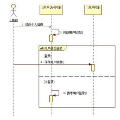Strict frequentism defines probability as the limiting relative frequency in an infinite sequence. What if the limit does not exist? We present a broader theory, which is applicable also to random phenomena that exhibit diverging relative frequencies. n doing so, we develop a close connection with the theory of imprecise probability: the cluster points of relative frequencies yield a coherent upper prevision. We show that a natural frequentist definition of conditional probability recovers the generalized Bayes rule. This also suggests an independence concept, which is related to epistemic irrelevance in the imprecise probability literature. Finally, we prove constructively that, for a finite set of elementary events, there exists a sequence for which the cluster points of relative frequencies coincide with a prespecified set which demonstrates the naturalness, and arguably completeness, of our theory.
翻译:严格频率主义将概率定义为无限序列中的极限相对频率。如果极限不存在怎么办?我们提出了一个更广泛的理论,适用于展现发散相对频率的随机现象。在这样做的过程中,我们与不精确概率的理论建立了密切的联系:相对频率的聚类点产生了一个相容的上部预期。我们展示了自然的频率定义条件概率可以恢复广义贝叶斯准则。这也暗示了一个独立概念,与不精确概率文献中的认识上的无关性有关。最后,我们证明了在有限元素事件的情况下,存在一个序列,使相对频率的聚类点与预先指定的集合重合,这展示了我们理论的自然性,以及其完整性。



